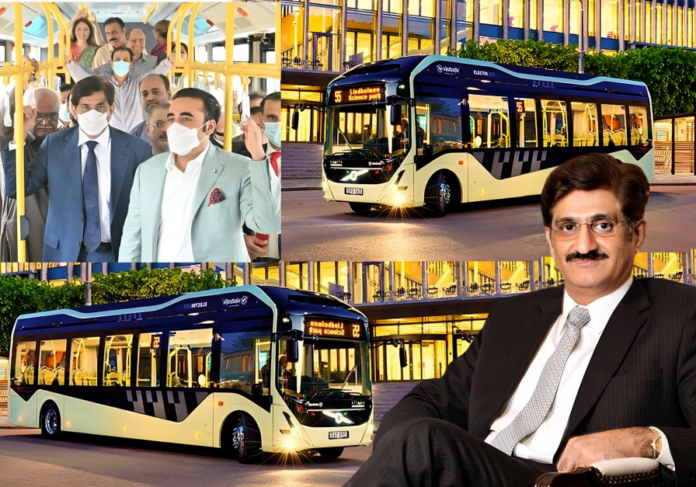The introduction of electric buses in Karachi marks a significant step toward sustainable urban mobility. The Sindh government recently approved a plan to deploy 500 electric buses within Karachi’s public transit system, positioning the city as a pioneer of eco-friendly urban transport in Pakistan.
This initiative comes as Karachi faces mounting pollution and congestion issues, with the city’s dense population creating a substantial demand for efficient and environmentally responsible public transport options. This new fleet of buses promises to enhance air quality, reduce noise pollution, and support a modernized, accessible transit infrastructure.
Electric Buses in Karachi: A Step Towards Cleaner Public Transport
Karachi, as Pakistan’s largest city, faces a daily struggle with overburdened roads, leading to increased travel times and vehicle emissions. The Sindh government’s decision to invest in electric public buses reflects an integrated approach to alleviate these urban challenges while ensuring affordable, reliable transportation.
According to Sindh Chief Minister Murad Ali Shah, the electric bus fleet aligns with broader public transportation initiatives, such as the Peoples Bus Service and the newly introduced Pink buses for women commuters, designed to make daily commutes safer, faster, and more efficient. The addition of electric buses in Karachi aims to address critical transportation gaps and accommodate a rapidly growing urban population.
Benefits of Electric Buses for Karachi Environment and Economy
Beyond reducing traffic congestion, electric buses bring substantial environmental benefits. Traditional buses contribute heavily to Karachi’s air pollution, but these new electric models promise to minimize greenhouse gas emissions, significantly reducing the city’s carbon footprint. Sharjeel Memon, the Provincial Transport Minister, emphasized that electric buses represent a pivotal shift towards renewable energy.
Operating on battery power, electric buses cut down fuel costs, providing a cleaner alternative for public transportation. This shift not only benefits the environment but also fosters economic resilience, lowering operational costs and potentially improving service frequency.
In rural areas of Sindh, where accessibility and connectivity are also priorities, the government is exploring diesel-hybrid buses to complement the electric fleet, aiming to expand energy-efficient transportation solutions province-wide.
Moving Toward a Greener Future for Karachi
As Karachi embraces electric buses, the Sindh government envisions extending this green initiative throughout the province, leading by example in sustainable energy use within Pakistan’s public sector. These developments are part of Sindh’s long-term vision to align with global sustainability targets, which prioritize low-emission vehicles and reduced reliance on fossil fuels. The plan positions Karachi as a model city for environmentally conscious urban transport, setting a precedent for other provinces to incorporate electric buses into their public transportation systems.
Public Response and Future Expansion Plans
The public response to the Sindh government’s green transport initiative has been largely positive. Many Karachiites see the electric buses as a much-needed upgrade to the existing transit network, which has long been plagued by outdated vehicles and inadequate service. The introduction of electric buses in Karachi is a promise of cleaner air, shorter commute times, and increased accessibility, particularly for low-income commuters who rely on public transport daily.
As Karachi pioneers this green initiative, Sindh officials plan to monitor the results closely to assess potential improvements and set benchmarks for expanding electric transport throughout the province.
The Punjab government is set to launch five new hybrid double-decker buses across Lahore, enhancing tourism with eco-friendly transportation. Additionally, Bahawalpur and Rawalpindi will each receive a hybrid double-decker, with similar plans for Multan and Faisalabad.
During the launch event, Chief Minister Maryam Nawaz inspected and rode one of the buses, receiving a briefing from the Tourism Development Corporation of Punjab (TDCP). These buses offer tourists a unique way to explore cultural landmarks, and in Lahore, routes from Qaddafi Stadium will cover key attractions, supporting sustainable tourism across Punjab.


